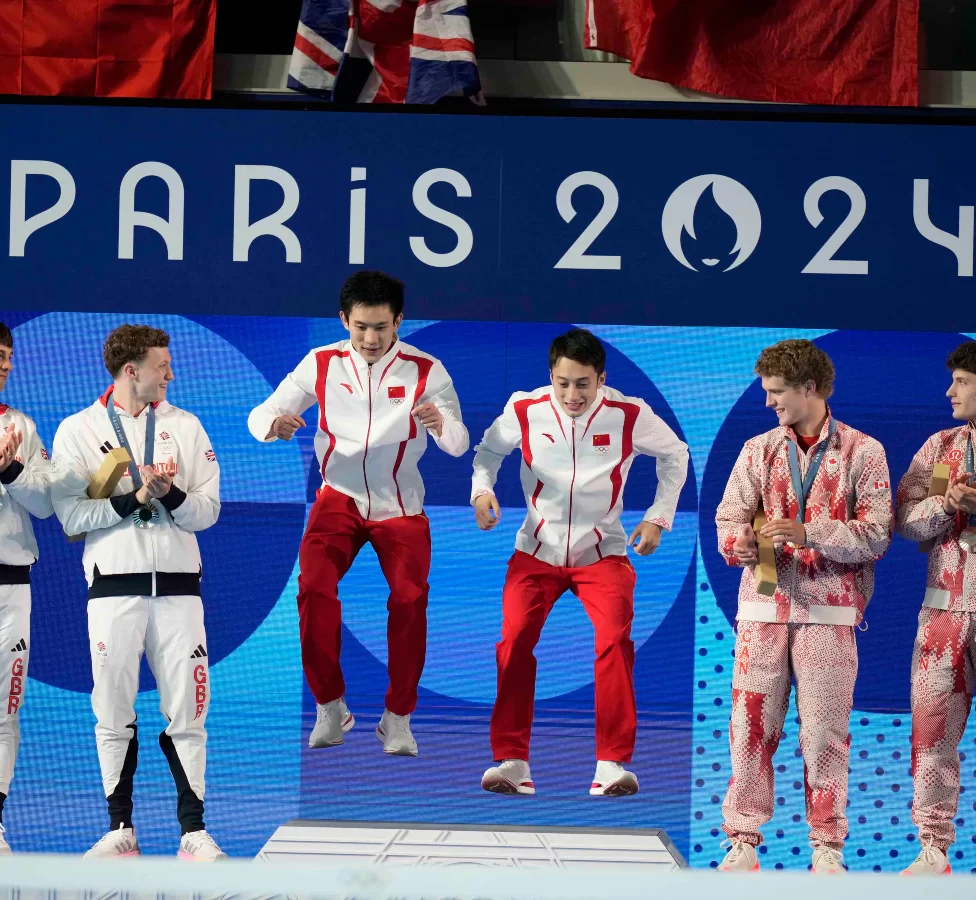Introduction to Diving in the Olympics
Diving is an exhilarating sport that has been part of the Olympic Games for over a century. The upcoming 2024 Summer Olympics in Paris will showcase the incredible talents of divers from around the globe. Athletes will compete in various events, demonstrating their skills in both springboard and platform diving. As the Olympics approach, excitement builds among fans, athletes, and coaches alike.
The sport of diving combines athleticism, precision, and artistry. Competitors are judged on their ability to execute complex maneuvers while maintaining grace and control in the air and upon entering the water. With history, tradition, and an ever-evolving nature, diving remains a fan favorite at the Summer Games. This article examines the format and events of Olympic diving, highlights the participating countries, profiles notable athletes, discusses training regimens, and explores the importance of safety measures in the sport.
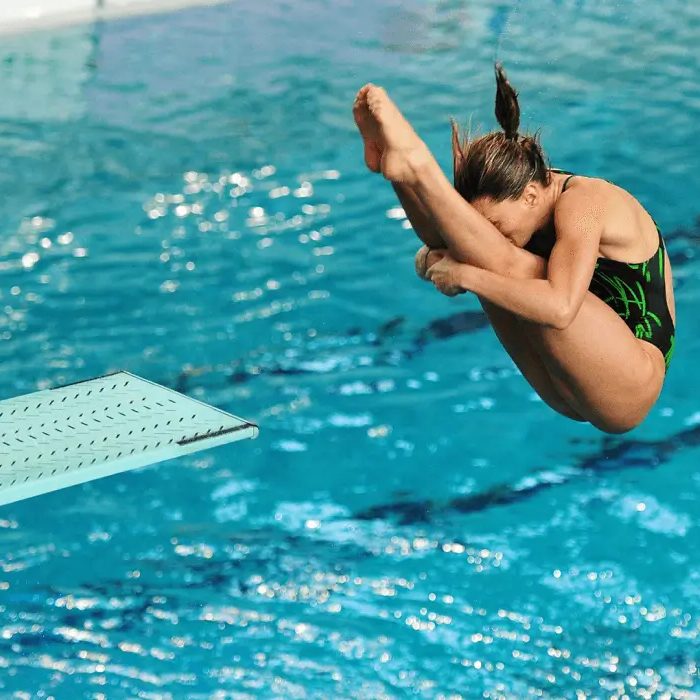
The Format and Events of Olympic Diving
Events in Diving
At the 2024 Olympics, diving competitions will include both men’s and women’s events. The primary events will be the 3-meter springboard, the 10-meter platform, and synchronized diving. Each of these events presents unique challenges and emphasizes different skills.
In springboard diving, athletes perform from a flexible board set 3 meters above the water. Divers are judged on their takeoff, execution, and entry into the water. The 10-meter platform event is held from a fixed platform that is 10 meters high. Athletes perform dives from the platform, with routines consisting of multiple twists and flips. Synchronization diving requires pairs of divers to perform similar dives simultaneously, showcasing their precision and timing. This variety of events allows divers to demonstrate their diverse skills and athletic abilities.
Scoring and Judging Criteria
Diving competitions at the Olympics use a comprehensive scoring system to assess performance. Judges evaluate each dive based on several criteria, including the diver’s approach, takeoff, height, rotation, and entry into the water. Each judge assigns a score from 0 to 10, with 10 representing a perfect dive.
The highest and lowest scores are typically discarded, and the remaining scores are averaged. This average is then multiplied by a degree of difficulty factor for the specific dive performed. This scoring system ensures a fair evaluation of each athlete’s performance, allowing the best divers to rise to the top through precision and skill.
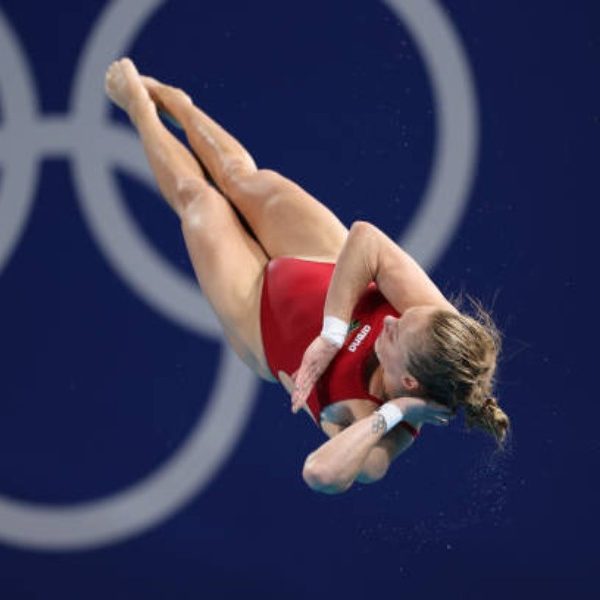
Participating Countries and Trends
Global Representation
The 2024 Olympics will see participation from countries around the world, showcasing the global nature of diving. Nations with rich diving traditions, such as China, the United States, Russia, and Great Britain, consistently produce elite divers who excel at the Olympic level.
China has long been dominant in diving, winning the majority of gold medals in recent Olympics. Their athletes are well-known for their technical prowess and exceptional training programs. Other countries, such as Australia, Canada, and Mexico, also have strong diving programs and are expected to compete fiercely in Paris. This diverse representation enriches the Olympic experience and highlights the widespread appeal of diving as a sport.
Emerging Trends in Diving
As the sport evolves, new trends emerge in training, technique, and equipment. Recent years have seen a rise in the use of technology in training programs, including video analysis and virtual reality simulations. These advancements help athletes refine their skills and improve their performance under pressure.
Additionally, the sport has seen a greater emphasis on artistry and presentation. Divers are not only judged on the technical aspects of their dives but also on their overall presentation and choreography. This shift encourages athletes to express their individuality and creativity, adding an exciting dimension to the competition. As the 2024 Olympics approach, these trends will shape the landscape of diving.
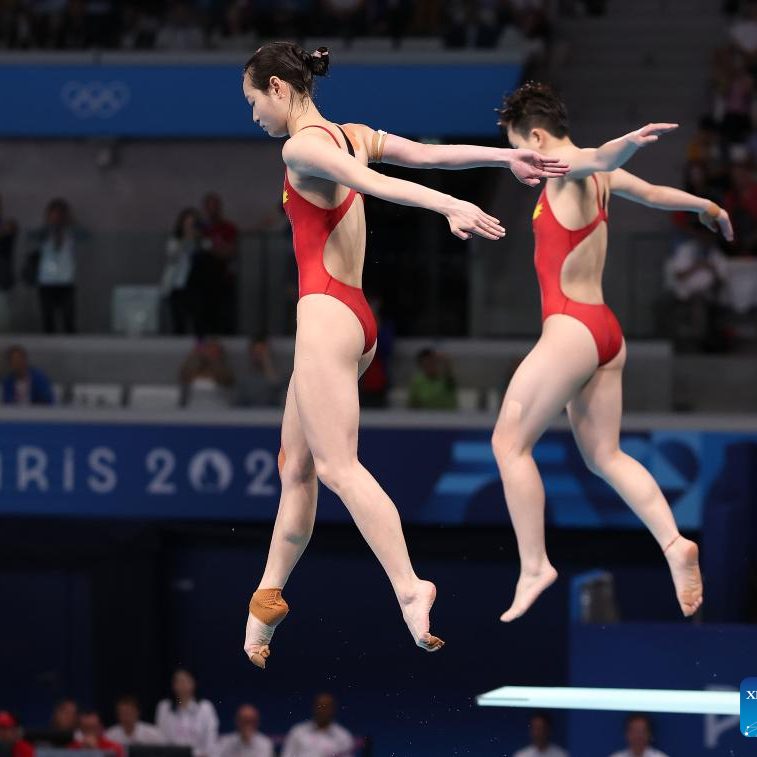
Profiles of Notable Athletes
Dominant Divers
Several athletes have distinguished themselves in the sport of diving and will be ones to watch during the 2024 Olympics. Tom Daley, representing Great Britain, is a household name following his success in multiple Olympic events. With his blend of athleticism and charisma, Daley has captivated audiences and continues to be a formidable competitor.
On the women’s side, Chinese diver Quan Hongchan has gained recognition for her remarkable performances. At a young age, her skills have garnered attention, and she is expected to be a strong contender in the upcoming Olympics. Both Daley and Quan exemplify dedication and talent, demonstrating that the sport of diving is in capable hands for the future.
Rising Stars
The diving community also boasts numerous rising stars who are making their mark. One such athlete is Andrea Spendolini-Sirieix from Great Britain. Despite her age, she has already achieved considerable success on the international stage. Her determination and skill make her one to keep an eye on during the upcoming Olympic events.
Similarly, diving prodigy 15-year-old Olympic qualifier Mia Valadez from the United States is generating buzz. Her impressive dives and competitive spirit have positioned her as a future star in the sport. The emergence of young, talented athletes adds excitement to the diving competitions at the Olympics and offers a glimpse into the future of the sport.
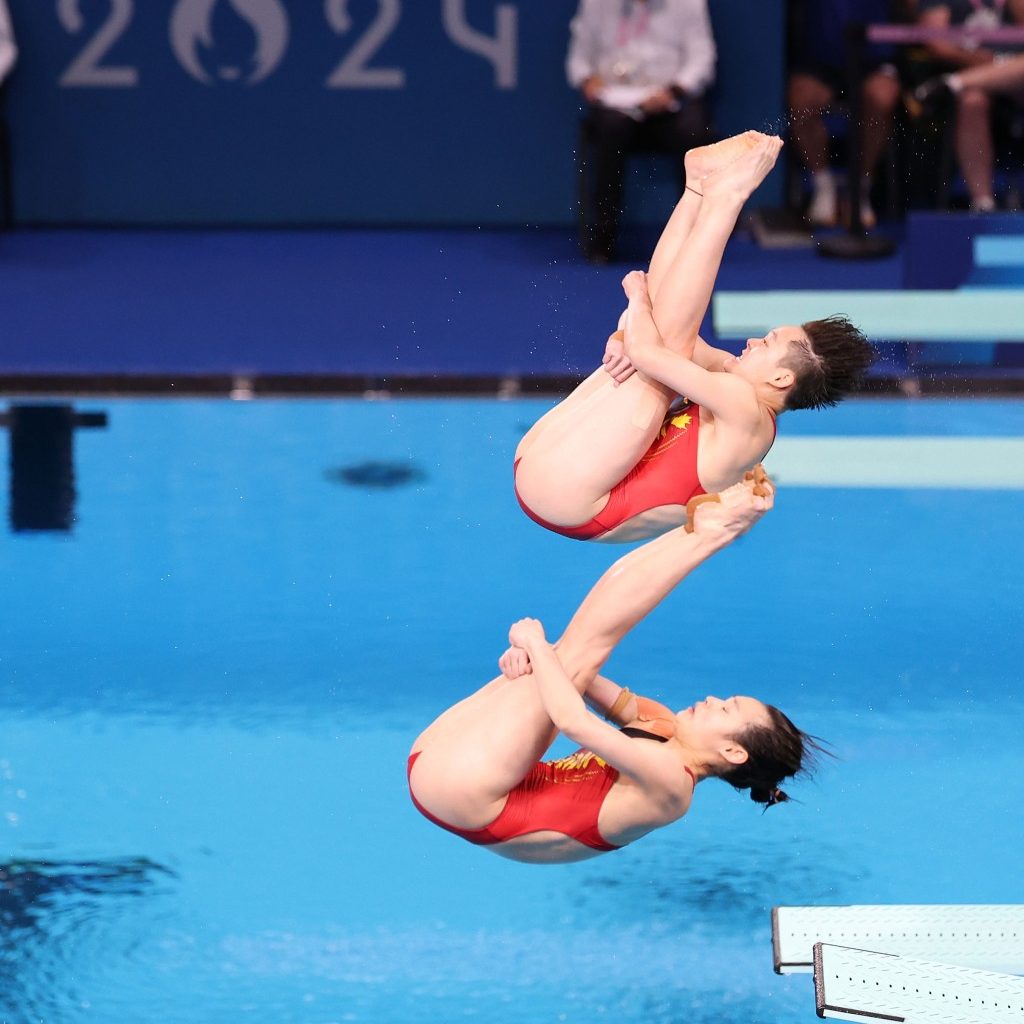
Training Regimens for Divers
Intensive Training Schedules
Training for Olympic-level diving requires rigorous and dedicated preparation. Athletes often train up to six days a week, spending several hours each day refining their techniques. Training sessions typically include practicing dives on both springboards and platforms, as well as dryland training to enhance strength and flexibility.
Dryland training may involve strength training, gymnastics, and flexibility exercises. These practices help divers build the necessary physical foundation for executing complex maneuvers safely and effectively. Mental conditioning is equally important, as divers must learn to manage pressure and focus on performance during competitions.
Role of Coaches and Support Teams
Coaches play a crucial role in the development of divers, providing guidance and feedback throughout the training process. Many successful divers work closely with coaches throughout their careers, developing a strong mentor-mentee relationship. Coaches assess performance, identify areas for improvement, and tailor training regimens to meet individual athlete needs.
In addition to coaches, divers often rely on support teams that may include sports psychologists, nutritionists, and physiotherapists. This comprehensive approach ensures that athletes receive well-rounded support, optimizing their physical and mental capabilities. The collaborative environment fosters growth, helping divers achieve their best performance at the Olympics
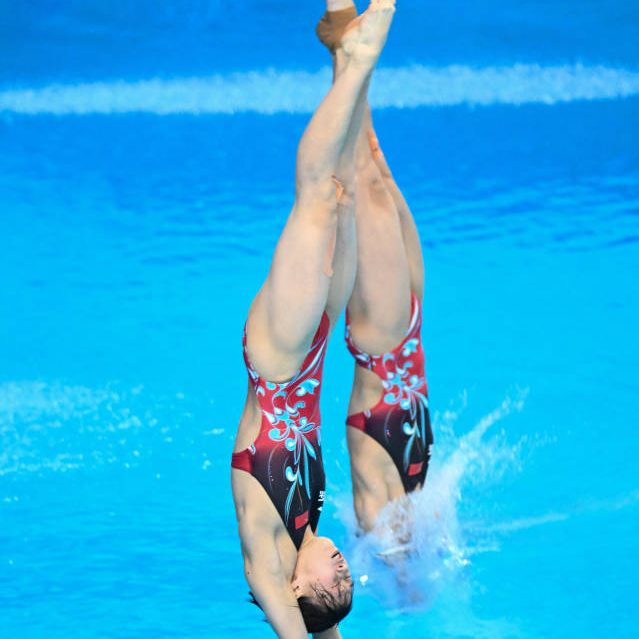
Safety Considerations in Diving
Importance of Safety Training
Safety is a critical consideration in the sport of diving. Divers engage in activities with inherent risks, as the execution of multiple rotations and twists while entering the water can lead to injury if not performed correctly. As a result, safety training is an integral part of an athlete’s routine.
Coaches prioritize teaching proper techniques and safe practices to minimize risks. Divers learn how to enter the water safely, how to spot during twists and flips, and how to avoid collisions with the diving platform. Regular safety drills and emphasis on proper technique help build athlete confidence and competence in the water.
Equipment Standards and Maintenance
Equipment quality is equally important in ensuring the safety of divers. Diving boards and platforms must meet strict safety standards and undergo regular inspections. Equipment maintenance ensures that springs, surfaces, and safety features are in good working order.
Divers must also use the right gear, such as swimsuits designed for optimal performance and traction. Consistent equipment checks help identify any potential issues before training or competition begins. By prioritizing safety, the diving community fosters a culture that protects athletes while allowing them to pursue their passion for the sport.
The Future of Diving and the Olympics
Evolving Techniques and Technologies
As diving continues to grow and evolve, new techniques and technologies are likely to shape its future. Advanced technology in training, such as the use of artificial intelligence and motion capture, can provide valuable insights for coaches and athletes. These tools allow divers to analyze their performance with precision and make necessary adjustments.
Moreover, the introduction of new diving events, formats, and scoring systems can enhance the overall viewer experience. Innovations in broadcasting and visual effects during competitions can further engage fans and showcase the beauty of diving. As the sport continues to progress, it will undoubtedly evolve, inviting new generations of divers.
The Significance of the 2024 Olympics
The 2024 Olympics in Paris will serve as a pivotal moment for diving and the athletes involved. The event will not only shine a spotlight on their incredible skills but will also inspire future generations of divers. With a rich history and a growing fan base, diving has a bright future, and the Olympics will play a significant role in promoting the sport.
Diving has the power to bring diverse cultures together, showcasing athletes who dedicate their lives to perfecting their craft. As fans watch the Olympic diving events unfold, they will witness the culmination of years of hard work and determination. The 2024 Olympics will mark a new chapter for the sport and its community, celebrating achievements and paving the way for future athletes.
Conclusion: Celebrating Diving at the 2024 Olympics
In conclusion, the diving competitions at the 2024 Olympics will highlight the incredible talents of athletes who dedicate their lives to the sport. From the rigorous training regimens to the excitement of competition, diving offers a unique blend of athleticism and artistry. The events will showcase thrilling performances and captivating storytelling that inspires viewers worldwide.
As the date approaches, the anticipation for diving grows, with both seasoned stars and rising talents ready to make their mark. Through a commitment to safety, innovation, and teamwork, the diving community is poised to deliver breathtaking displays that will be remembered for years.
The 2024 Olympics will bring together cultures, unite fans, and celebrate the remarkable achievements of divers. As we count down to this significant event, it is important to appreciate the dedication and passion that drive athletes to chase their dreams. Diving at the Olympics is more than a sport; it is a celebration of human spirit and determination.
